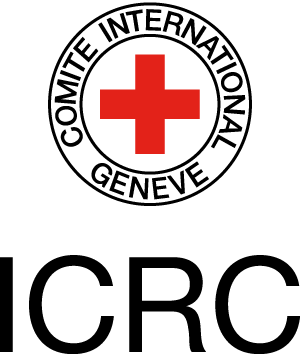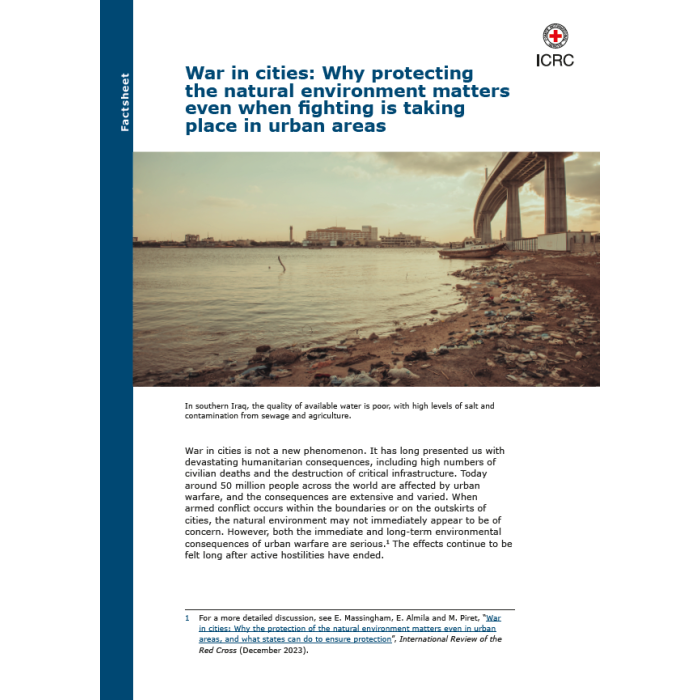We use cookies to make your experience better. To comply with the new e-Privacy directive, we need to ask for your consent to set the cookies. Learn more.
War in cities: Why protecting the natural environment matters even when fighting is taking place in urban areas
Cities contain many natural features, biodiversity and ecosystems. Those provide a multitude of particularly interconnected services to people, which are commonly referred to as “ecosystem services”. These include provisioning (food and clean water), regulating (flood control and pollution filtering), and cultural (recreation, such as parks) and supportive services (nutrient cycling)Fighting in cities will harm these ecosystems and destroy biodiversity, and in turn affect the well-being and health of local populations and their ability to inhabit the area, sometimes even long after the conflict has ended. The contamination of the air, soil, subsoil and watercourses caused by war in cities will be significant due to:
- toxic and harmful constituents inside weapons and explosives used during hostilities in urban settings
- fire, debris and rubble that result from such hostilities – especially when facilities containing toxic and hazardous substances are damaged
- damage to water, sanitation and electrical infrastructure that services a city.
This document lays out the legal and policy framework protecting the environment in armed conflict. It also describes the measures that can and should be taken by states and other actors, including non-state armed groups, as well as humanitarian, community or corporate actors to reduce environmental degradation.


